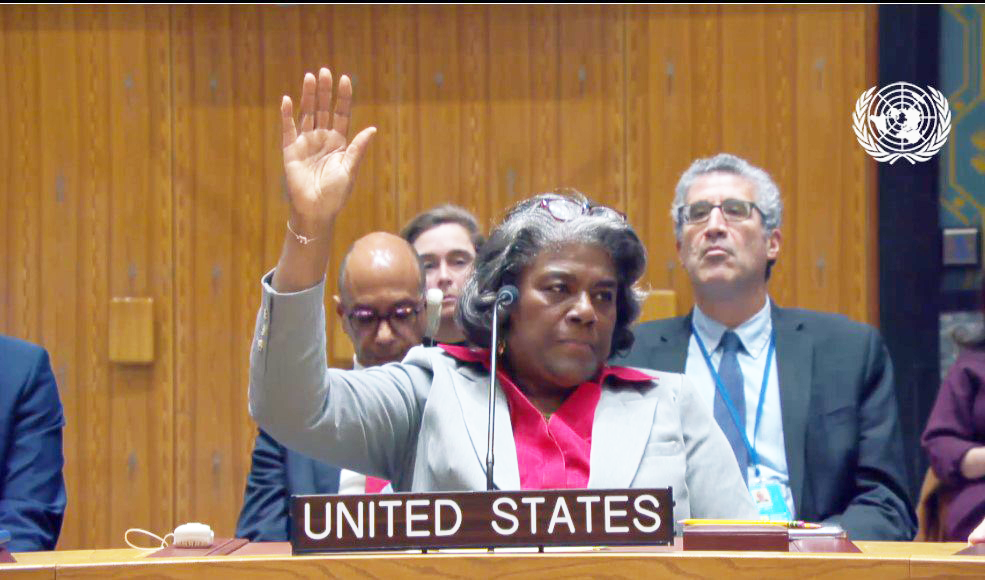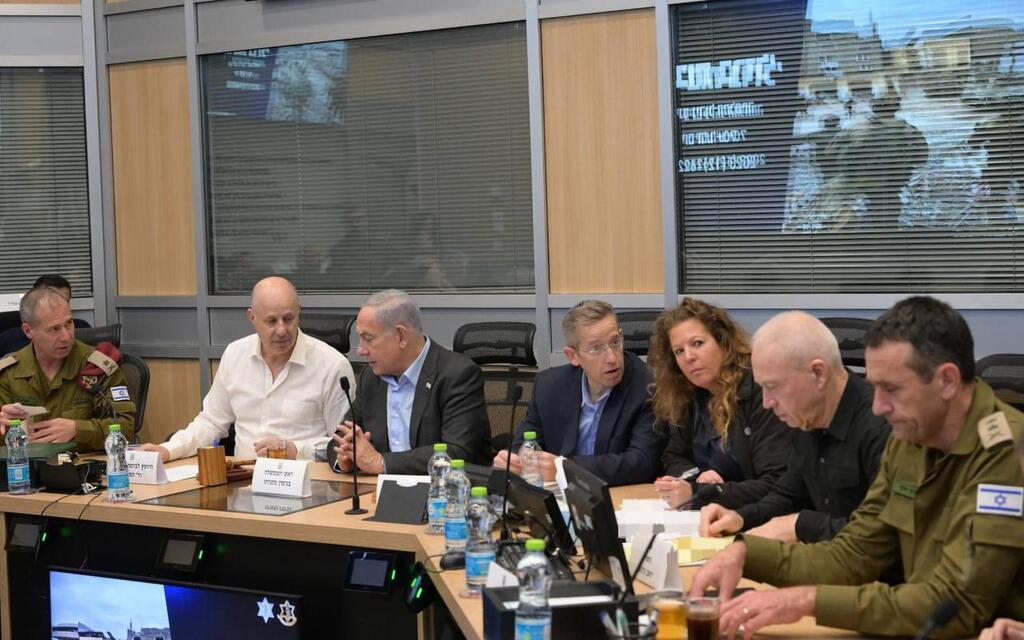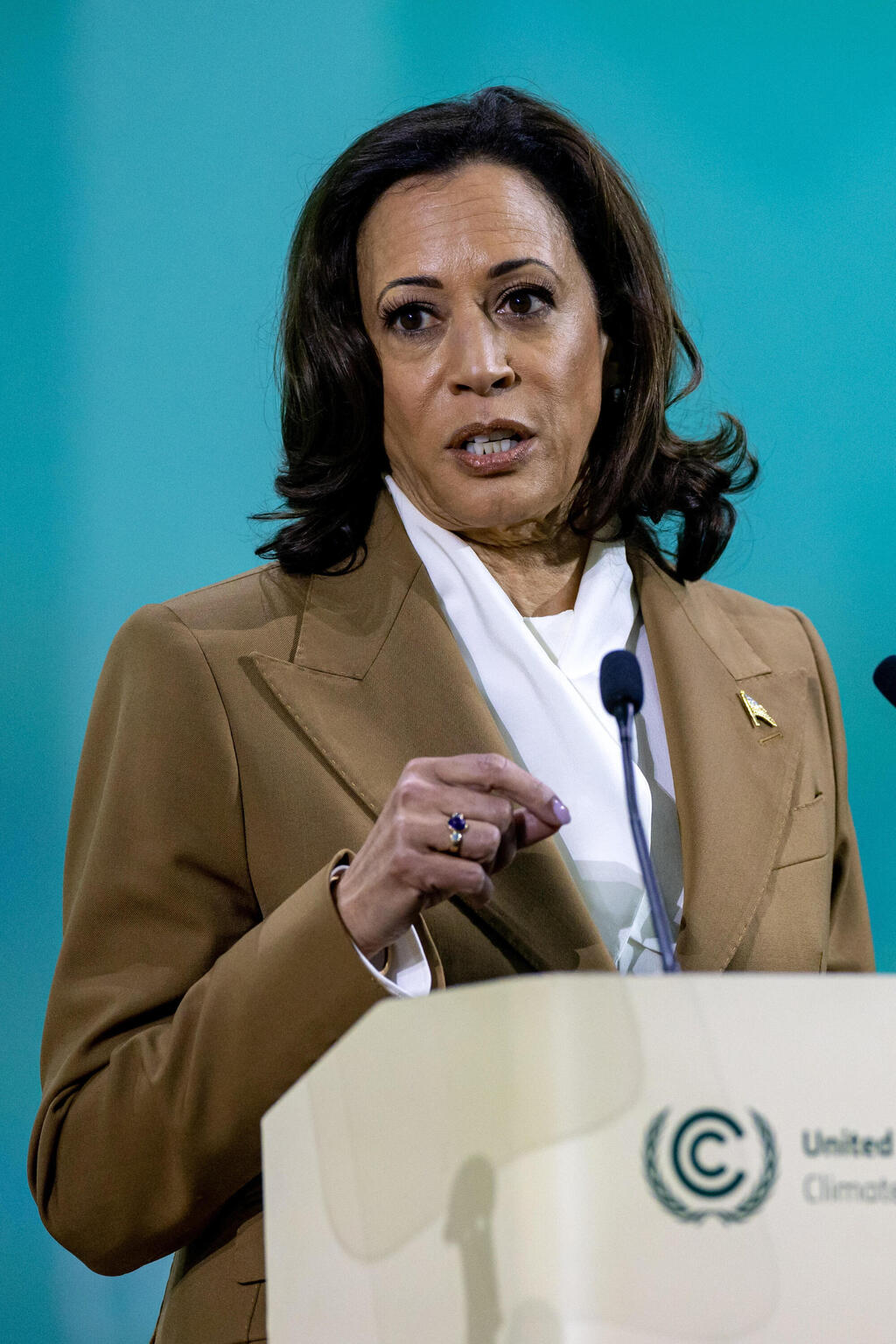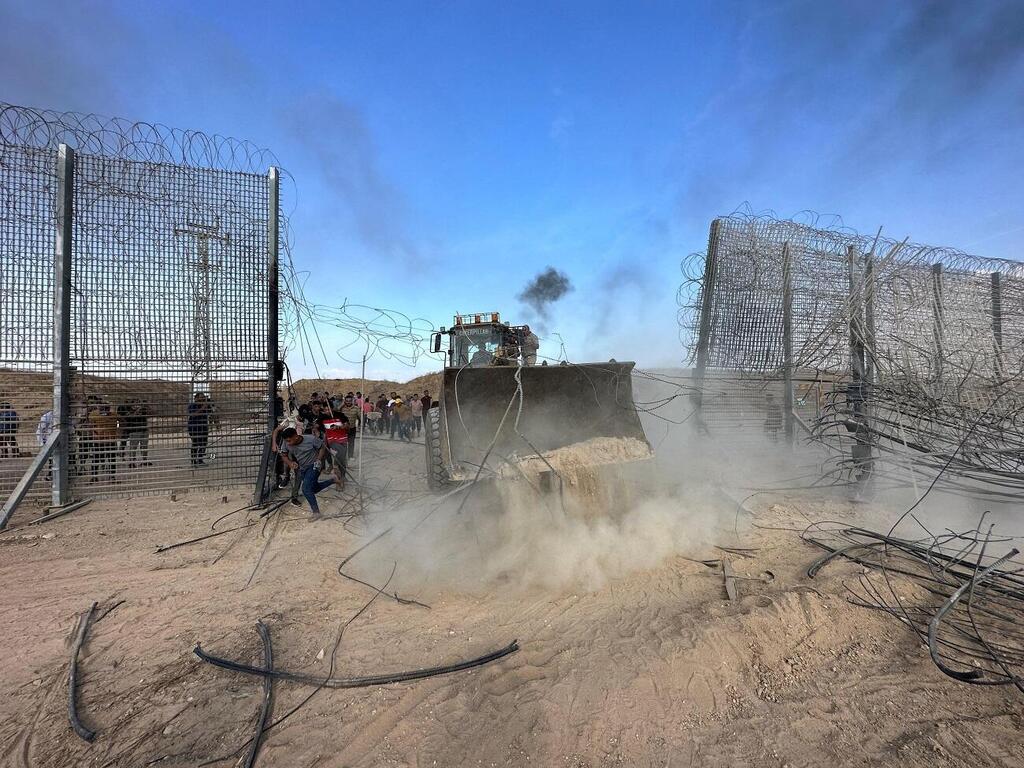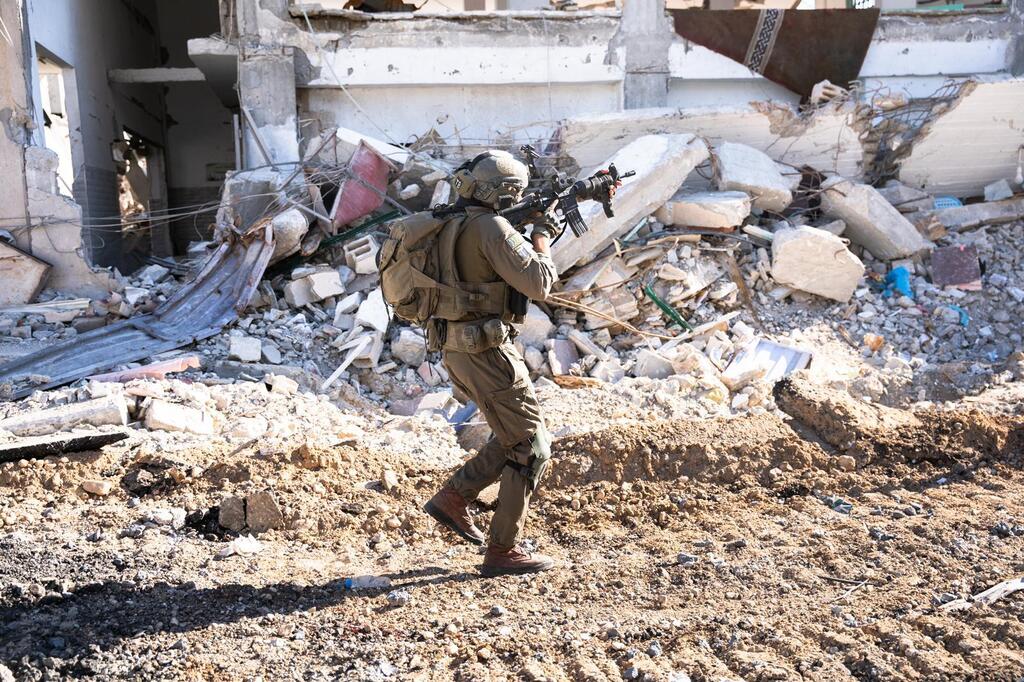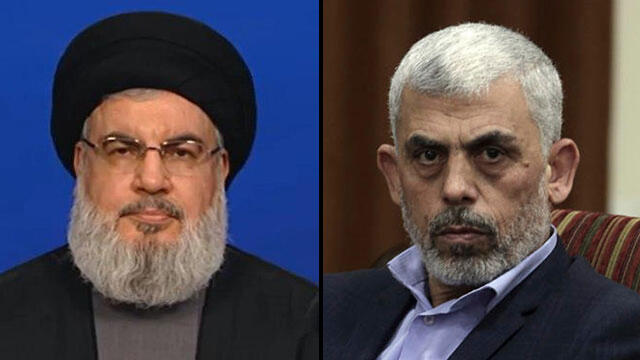The UN Security Council (UNSC) Resolution 2728 which “demands an immediate cease-fire for the month of Ramadan respected by all parties leading to a lasting sustainable cease-fire” in Gaza, is less consequential than the policy change displayed by the United States’ failure to veto it. While the White House denied the abstention marked a “shift” in its approach, the new American position is undoubtedly motivated by President Biden’s election politics.
10 View gallery
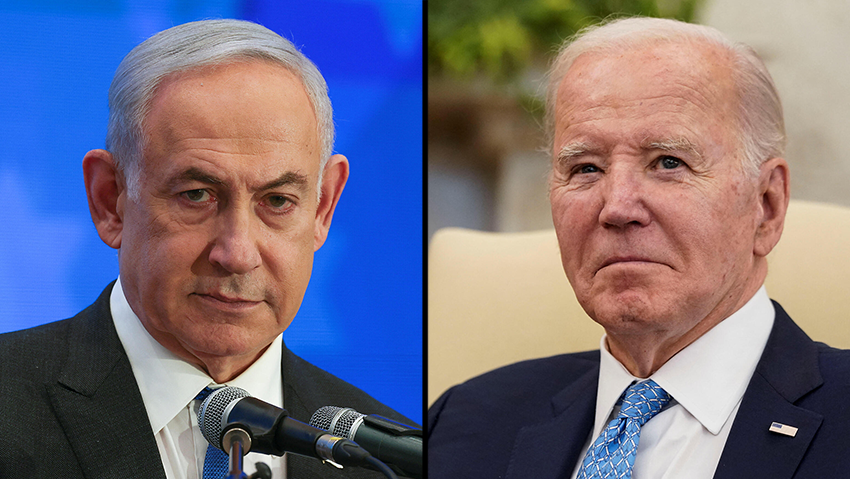

Heading to another rift? Netanyahu and Biden
(Photo: REUTERS/Ronen Zvulun, REUTERS/Elizabeth Frantz)
The White House, it appears, has concluded that an Israeli decisive move against the remaining Hamas strongholds in Rafah would doom Biden’s chances of being re-elected. Therefore the vote in the UNSC may be read as the President’s acting to block the IDF’s war plan by telling Israel “don’t count on automatic American support if you ignore my objections to a Rafah operation.”
Biden is deftly worried that an IDF attack there would result in a high death toll among “innocent” Palestinians. Such an outcome, Washington fears, will devoid the President of the necessary votes to carry the two crucial battleground states of Michigan and Minnesota where large Muslim enclaves, vehemently opposed to the IDF’s crushing of Hamas, exist.
Thus, while signaling Israel, the U.S. abstention in the UNSC is equally aimed to sway these voting blocs by assuring them the President has heard their concerns and is working hard to prevent an IDF “bloodbath” in Rafah.
However by undertaking this gesture Biden has reaffirmed what Hamas knew all along—its most valuable strategic weapon is not its rockets, its murdering “soldiers” or even its allies in Iran and Lebanon. Rather it is the political power of the Muslim fifth column that is based, where jihadists teach, Satan himself resides—i.e. the United States.
The dormant yet ready-to-spring-to-action Arab/Muslim immigrant communities in America and in other democracies around the world could thus be relied upon as a “last-resort weapon” to block the IDF. The goal is to ensure Hamas’ continued survival so it can once again try to annihilate Israel and advance jihadism.
There is little doubt in Israel that this was the Hamas leader Yahyah Sinwar’s plan from the get-go.
Indeed, from Hamas’ point of view, there is scant difference between the role of these Muslim communities and its dependence on incessant international calls for the IDF to conduct itself in line with the Western rules of warfare. Both are force multipliers for Hamas and other jihadi terrorists.
On the other hand, in the wake of October 7, the government of Benjamin Netanyahu, backed by the vast majority of the Israeli public, is determined to continue the war into Rafah to ensure the destruction of the Hamas terrorist army and to achieve its stated goal that “Gaza will never again pose a threat” to the Jewish state.
The clash between the two allies and the brewing crisis in U.S.-Israeli relations was inevitable as each leader sees their position in terms of “do or die.”
Opponents of Netanyahu will undoubtedly charge now that the Prime Minister engineered the crisis for his own political gain. As Israeli news website editor David Horovitz wrote “Netanyahu regards the face-off [with the U.S.] as the latest proof of his self-cited capacity to rebuff pressure, even from the best of allies, and ostensibly defend Israel’s interests. He may believe it makes him look strong, and will thus help rescue his popularity, destroyed by the failure to prevent Hamas’ horrific invasion of southern Israel.”
Similar comments came from “senior officials” in Washington who were cited in the Israeli press. They accused Netanyahu of seizing on the UNSC vote to manufacture a crisis for purely domestic political motives. They cited the nixing of the dispatch to Washington of a senior Israeli delegation to discuss “alternatives” to the pending Rafah operation, as an example of “overreaction” deliberately designed to portray the growing “daylight” between the two governments’ positions.
10 View gallery
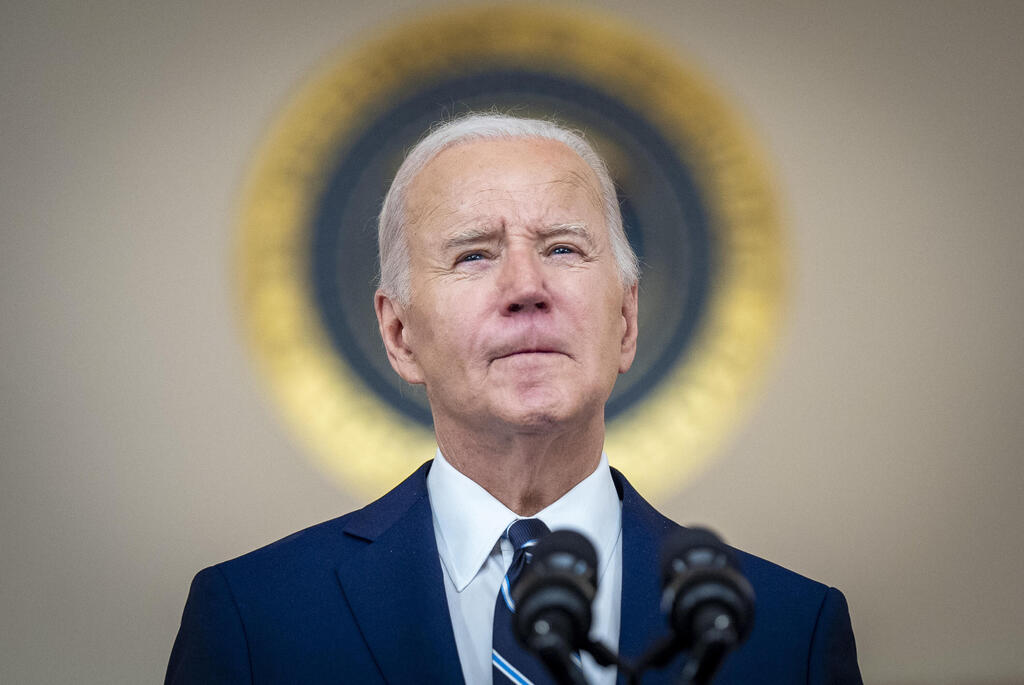

White House officials claim Netanyahu is trying to capitalize on rift between countries
(Photo: AP)
The solution, these opponents argue, is for Netanyahu to go as he has single-handedly destroyed Israel’s relationship with its most important strategic ally. Only the departure of the Prime Minister would allow to begin the mending of the immense damage his political machinations wreaked on Israel in general and on its relations with the U.S. in particular.
Indeed it seems reasonable to infer that the Biden administration would like to see Netanyahu ousted and a new “ more moderate” government voted into office, and that for this purpose a decision has been made in Washington to escalate the friction with Jerusalem.
As U.S. Vice President Kamala Harris stated earlier this month, it was “important for us to distinguish or at least not conflate the Israeli government with the Israeli people.”
At the minimum, the White House is probably frustrated by the seeming ingratitude of Netanyahu for the support and aid that has flowed uninterrupted from the U.S. ever since Israel came under attack. After all Netanyahu himself acknowledged more than once that without the U.S. continuing its arms supply the IDF’s operations would be severely hampered. Biden undoubtedly has a difficult time understanding why then would the Israeli premier insists on a large-scale offensive in Rafah knowing full well such an undertaking, if it ends up causing significant “collateral damage,” could jeopardize his reelection chances.
The President’s confusion stems from the failure in Washington to recognize the dramatic shift in Israel’s assessment of its threat environment, the IDF’s consequential rethinking of its military doctrine and the transformation in the Israeli public’s core beliefs which the October 7, invasion had precipitated.
However, regardless of the true reasons for the seemingly rapid deterioration in U.S.-Israeli relations, it is hardly just a matter of political import. The loss of trust, not to mention growing animosity, between the two countries’ leaders is a tragic development, especially during wartime. Even the appearance of cracks in the relationship could carry significant strategic costs.
Indeed it is impossible to underestimate the damage the ongoing confrontation could cause to both sides’ fundamental security interests.
To begin with, any sign of rupture between Washington and Jerusalem could be interpreted by Hamas as an incentive to prolong the fighting in the belief that the time is working in its favor. Hamas may now be convinced that the international pressure it is dependent on to stop the IDF is finally coming through. It could soon claim victory, boasting that Israel failed to achieve any of its war objectives.
Such a development would be nothing less than an unmitigated disaster. In effect, it will compound the devastating results that the October 7, attack inflicted on Israel. Whatever achievements were made by the IDF since then in terms of restoring Israel’s deterrence externally and confidence internally will be simply wiped out.
Little wonder that Hamas hailed the resolution, and called for “a permanent cease-fire that leads to the withdrawal of all Zionist forces from the Gaza Strip, and the return of the displaced to the homes from which they left.”
Worse yet, is the likely impact on Iran and its Lebanese proxy— Hezbollah. In effect by tacitly endorsing the UNSC resolution the Biden administration is now in the same trench as the mullahs who from early on pushed for the imposition of a ceasefire in the Gaza war. Tehran figured out this would be the optimal way to salvage Hamas from a certain destruction—an outcome that would derail Iran’s proxy strategy.
Even more concerning to the mullahs was the growing prospect that the IDF, after completing its mission in Gaza, would turn to deal with the threat to Israel from the north. Such a scenario looks especially likely given the new offensive doctrine the IDF adopted in the wake of October 7, and the fact that some 80,000 residents of northern Israel cannot return to their homes due to continued Hezbollah bombardments of their communities.
On the line would thus be the demolition or significant degradation by the IDF of Hezbollah—the mullahs’ chief regional proxy—but more importantly the force built over years by Iran as a strategic deterrent to dissuade Israel from attacking its nuclear program.
Conversely, in view of Israel’s increased international isolation, Iran and Hezbollah may believe the time is ripe to preempt any Israeli forthcoming offensive. Instead of being warned by a U.S. strategic umbrella, which Washington had quickly spread over Israel to deter others from joining Hamas, Tehran and its Lebanese proxy may now assess the time for action is ripe as Israel is alone and susceptible to attack.
10 View gallery


Israel's enemies emboldened by international pressure on Jerusalem
(Photo: EPA, Reuters, AFP, Rafi Kotz)
Simultaneously any policy shift that would convince Israel it has been abandoned in its time if needed is a sure-fire prescription for Jerusalem to adopt a “landlord gone berserk” strategy. The more vulnerable Israel feels the higher the chances of an offensive against Hezbollah and/or Iran will be. Biden is thus playing with fire as his nightmare scenario —an all-out regional war—could not only materialize but take place on the eve of U.S. elections.
Biden repeatedly signaled he strongly aims to avoid being dragged into an all-out Middle Eastern war. After all such a conflagration may impact regional American military and other assets and cost American lives. The President’s reelection prospects would dim considerably.
However, by far the worst outcome of Biden’s political maneuvers, one which the UNSC abstention indirectly confirms, is that the historic opportunity given him to reshape the Middle East and to roll back Iran’s malign proxy strategy, by seeing the war in Gaza to its conclusion, is being squandered for the sake of electioneering.
Clearly the back and forth between the two allies serves nobody’s strategic interests except those of their enemies
A chance to tilt the East-West balance of powers away from the menacing Russia-China-Iran axis and, equally as important, stem the danger that jihadism poses globally in favor of the free world is likewise being wasted.
Clearly the back and forth between the two allies serves nobody’s strategic interests except those of their enemies. Ordinarily one could have expected that the superpower in this alliance would appreciate this damaging reality and urgently act to revalidate the relationships in furtherance of the geopolitical opportunities which the October 7, crisis has tragically created. However, it appears that, at least for now, Biden’s reelection calculations have taken precedence.
- Dr. Avigdor Haselkorn is a strategic analyst and the author of books, articles and op-eds on national security issues.



